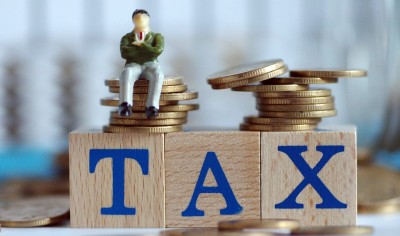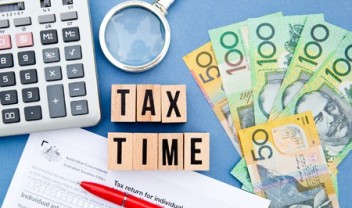News / Monthly Tax Update - December 2024
Monthly Tax Update - December 2024
01STDEC 2024


Can staff celebrations attract FBT?
With the holiday season coming up, employers may be planning to celebrate with their employees.
Before they hire a restaurant or book an event, employers should make sure to work out if the benefits they provide their employees are considered entertainment-related, and therefore subject to fringe benefits tax ('FBT'). This will depend on:
- the amount they spend on each employee;
- when and where the celebration is held;
- who attends — is it just employees, or are partners, clients or suppliers also invited?
- the value and type of gifts they provide.
Employers who do provide entertainment-related fringe benefits should keep records detailing all of this information so they can calculate their taxable value.
Reminder of December 2024 Quarter Superannuation Guarantee ('SG')
Employers are reminded that employee superannuation contributions for the quarter ending 31 December 2024 must be received by the relevant super funds by 28 January 2025. If the correct amount of SG is not paid by an employer on time, they will be liable to pay the SG charge, which includes a penalty and interest component.
The SG rate is 11.5% for the 2025 income year.
ATO's tips for small businesses to 'get it right'
While the ATO knows most small businesses try to report correctly, it understands that mistakes can happen. The ATO advises taxpayers that it is important to get the following 'basics' right:
- using digital tools and business software to help track and streamline processes to increase the efficiency of their business;
- keeping accurate and complete records, which will help taxpayers meet their tax and super obligations and make lodging easier; and
- getting the right advice from trusted resources such as their registered tax professional or the ATO's website, which can help taxpayers navigate change and uncertainty at any stage of the business life cycle.
SMSFs cannot be used for Christmas presents!
There are very limited circumstances where taxpayers can legally access their super early, and the ATO is reminding taxpayers that "paying bills and buying Christmas presents doesn't make the list."
Generally, taxayers can only access their super when they:
- reach preservation age and 'retire'; or
- turn 65 (even if they are still working).
To access their super legally before then, taxpayers must satisfy a 'condition of release'.
SMSF members who illegally access their benefits may be liable for additional income tax and administrative penalties, and they could be disqualified as a trustee.
For taxpayers who have illegally accessed their super, returning it to the fund may be considered a new contribution. Depending on their contribution caps, this may result in additional tax on excess contributions.
Taxpayers should beware of people promoting 'early access schemes' to withdraw their super early (other than by legal means). They can protect themselves from promoters of such schemes by:
- stopping any involvement with the scheme, organisation or person who approached them;
- not signing any documents, and not providing any of their personal details such as their tax file number; and
- making a 'tip-off' to the ATO online or by phoning the ATO on 13 10 20.
Taxpayer's claims for various 'home business' expenses rejected
In a recent decision, the AAT rejected in full a taxpayer's claims for "several classes or categories of deductions."
For the relevant period of 1 July 2021 to 30 June 2022, the taxpayer was (according to his employer) a 'technical architect'.
However, the taxpayer also claimed he worked from home 6am to 11pm seven days a week, 365 days of the year (as he was ‘always on call’), and his income tax return for the 2022 financial year claimed a wide range of deductions, totalling approximately $40,000.
The AAT separately considered each category of deductions claimed, and rejected each in turn.
In relation to his home office 'occupancy expenses' (e.g., for home insurance, council rates, waste disposal, water rates, and repairs), the AAT noted that the 'home office' rooms (comprising floorspace occupying 31% of the dwelling’s total floor area) were not physically separate from the remainder of the dwelling, which the taxpayer shared with four other members of his family.
Home office running expenses (e.g., gas, power and internet) were disallowed on the grounds that the taxpayer had "not properly established an entitlement to such deductions or otherwise appropriately apportioned them between private or work-related activities." The AAT found his 100% claim for the internet, on the basis that the other members of the household did not use the internet connection, "very difficult to accept".
In relation to plant and equipment expenses, the evidence was "largely non-existent."
In relation to consumable expenses, the AAT noted that they appeared to be for goods or services of a private or domestic nature (including medications, toilet paper, milk, tea, sugar and insect spray).
The AAT also rejected the taxpayer's claim for "payments made to his spouse for tax management, office cleaning and document management/storage", noting that the services provided were generally of a private or domestic nature, and that the rendering of invoices by the spouse "has a degree of artificiality to it".
ATO reminder about family trust elections
Taxpayers may be considering whether they should make a family trust election ('FTE') for a trust, or an interposed entity election ('IEE') for a trust or other entity.
Making an FTE provides access to certain tax concessions (assuming the relevant tests and conditions are satisfied), although there are important things to consider.
In particular, once the election is in effect, family trust distribution tax ('FTDT') is imposed when distributions are made outside the family group of the 'specified individual'. FTDT is a 47% tax, payable by a trustee, director, or partner, as the case may be (depending on the entity).
Taxpayers should review FTEs and IEEs annually to ensure they remain appropriate. Taxpayers can only revoke or vary FTEs and IEEs in limited circumstances and subject to certain conditions.
Before making a distribution or annual trust resolutions, trustees should identify the members of the specified individual's family group. This will help avoid FTDT liabilities.
Other Articles
Monthly Tax Update - July 2025

1ST JUL 2025
This months edition of the monthly tax update includes information on Changes to car thresholds from 1 July, Reminder of June 2025 Quarter Superannuation Guarantee ('SG'), Taking charge of upcoming employer obligations, Notice of data exchange for skilled visa program compliance, TBAR for June quarter due 28 July, Beware of tax advice from 'finfluencers' and Taxpayer's claim for home office and car expenses successful. Please contact us if you wish to discuss how the points raised in this month’s monthly tax update specifically affect you.
Monthly Tax Update - March 2025

3RD MAR 2025
This months edition of the monthly tax update includes information on How to master employer obligations in 2025, ATO's tips to help taxpayers stay on top of their BAS, Claiming fuel tax credits when rates change, ATO "busts" NFP myths, Taxpayer's claim for input tax credits unsuccessful and ATO's appeal against decision that UPEs are not "loans" fails. Please contact us if you wish to discuss how the points raised in this month’s monthly tax update specifically affect you.

